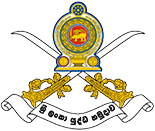‘Viru Daru’ Society functioning under the guidance and close supervision of Seva Vanitha Army Branch (SVAB), comprised of children of War Hero families, marked the Sinhala and Tamil New Year with a ceremony, full of New Year games and amusement this morning (17) at Mahinda Rajapaksa Stadium, Diyagama.
Lieutenant General Jagath Jayasuriya, the Commander of the Army accompanied by Mrs Manjulika Jayasuriya, President SVAB, the driving force behind founding of ‘Viru Daru’ societies under purview of the Seva Vanitha Army Branch, inaugurated the day’s event by lighting the traditional oil lamp. On arrival, the Chief Guest and the President SVAB were warmly received by Ms Deshani Jayasuriya, Chairperson, ‘Viru Daru’ society and Mr. Malindu Udawatta, overall coordinator, ‘Viru Daru’ society by offering sheaf of betel leaves.
The entire festival ground, dotted with a number of typical models of ancient rural structures, like Govi Gedara, Thirikkale, traditional Raban playing, etc, produced by some of the ‘Viru Daru’ members themselves, added a taste of the typical village based activities around the times of the New Year period.
A special feature of the day’s event was the participation of a segment of students and teachers from Northern Province as a gesture of good will, peace and harmony among all communities. President SVAB did not forget to spare some time to mingle with these students and share some ideas with them.
Traditional and fun making New Year features such as hurdle crossing, cadjan weaving, pillow-fights, grease pole climbing, eye-placing on the Elephant, lime balancing, tug-of-war, fancy dress parade and a number of other games dominated the day’s proceedings to the much amusement of all the onlookers. Members of the SVAB too participated in several events organized especially for them.
Lieutenant General Jagath Jayasuriya, together with members of the ‘Viru Daru’ society and senior officers of the army witnessed the sequence of events and joined the award of prizes and other incentives.
.jpg) |
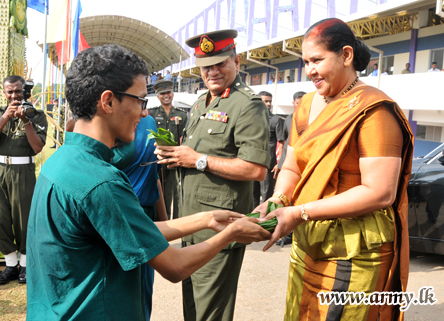 |
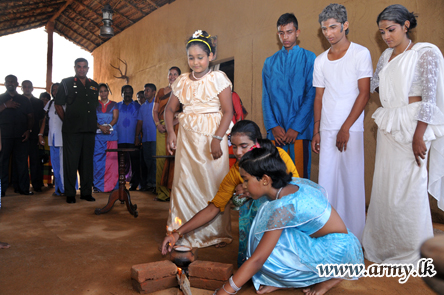 |
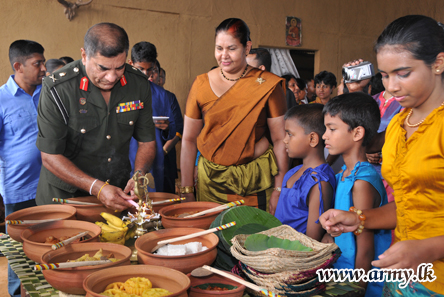 |
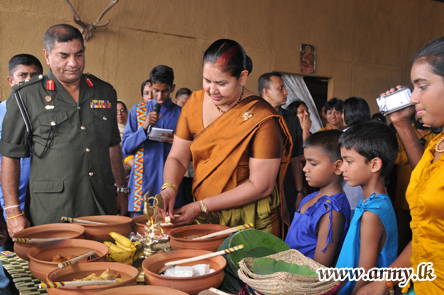 |
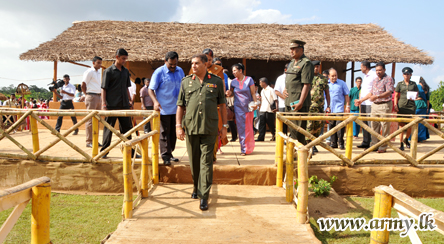 |
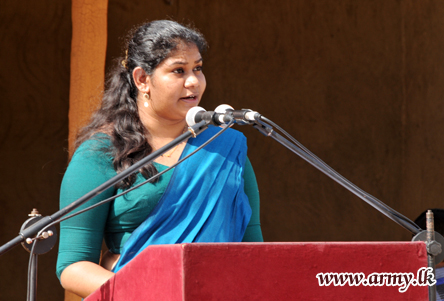 |
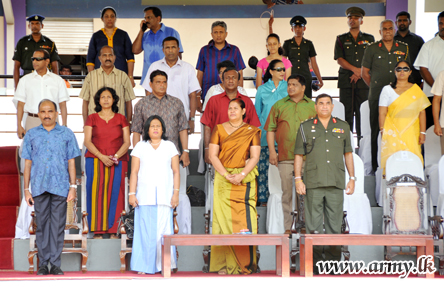 |
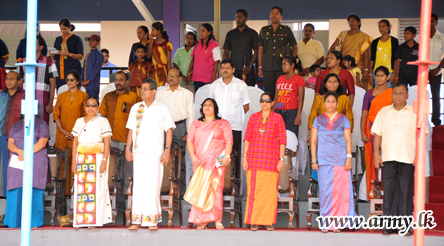 |
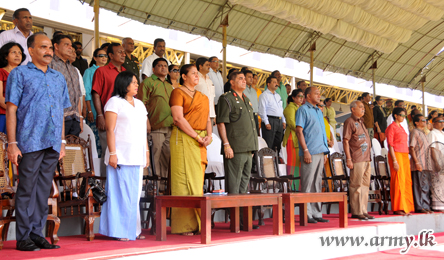 |
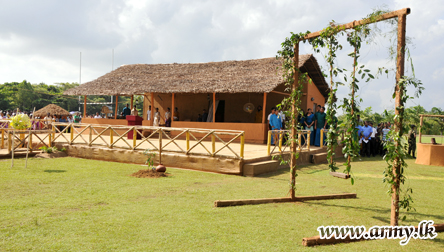 |
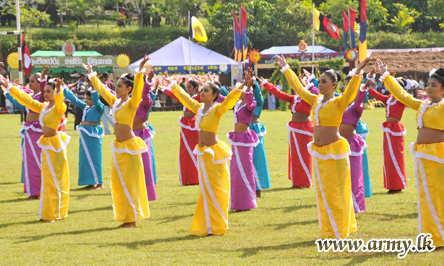 |
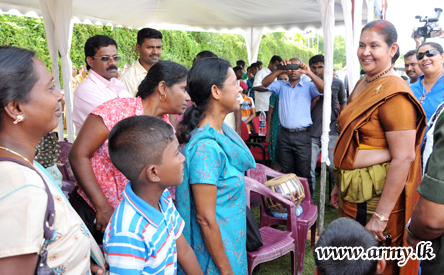 |
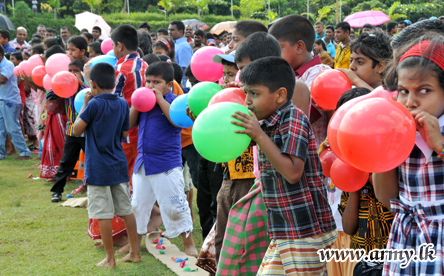 |
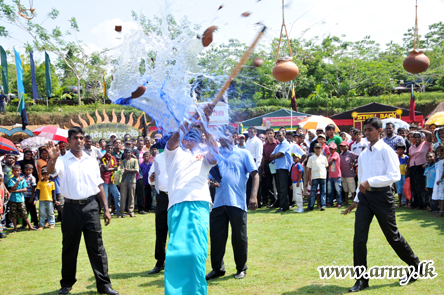 |
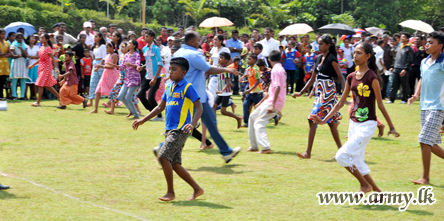 |
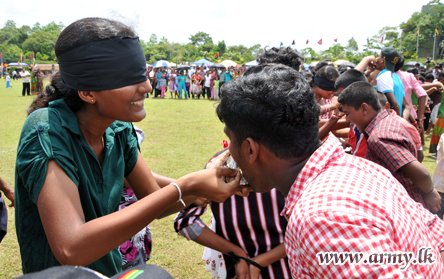 |
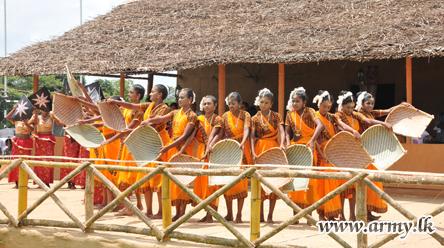 |
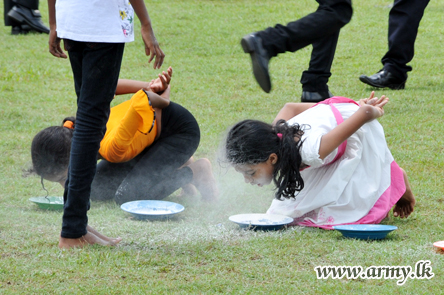 |
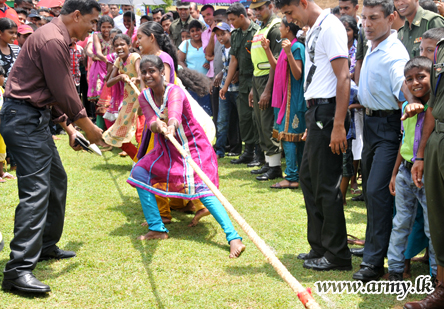 |
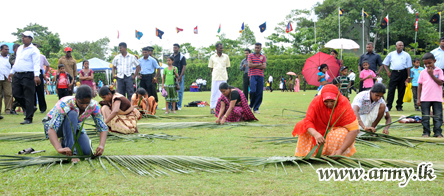 |
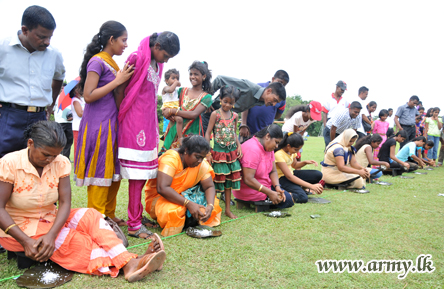 |
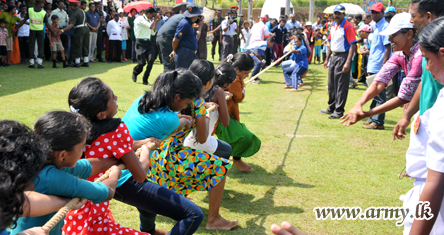 |
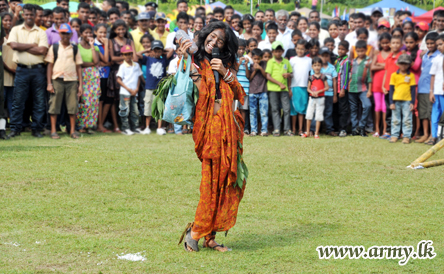 |
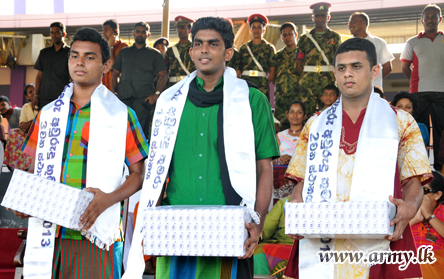 |
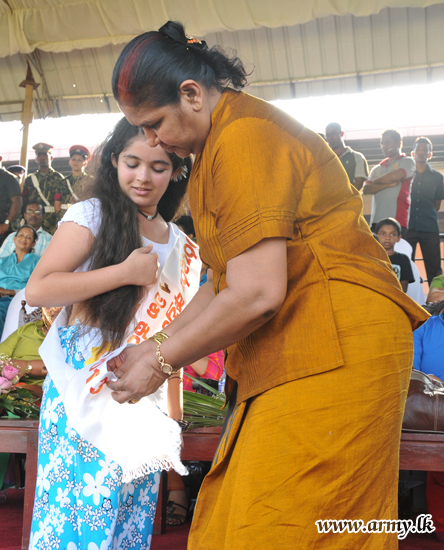 |
 |
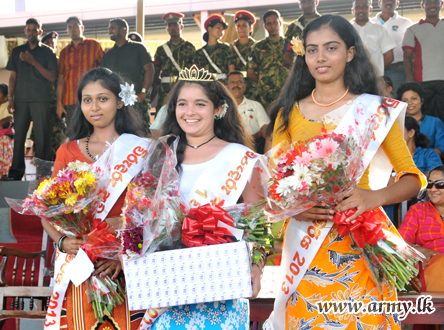 |
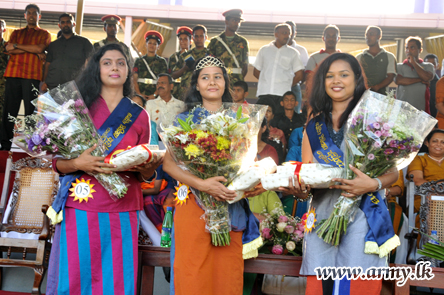 |
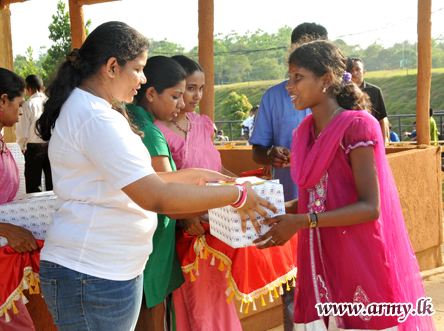 |
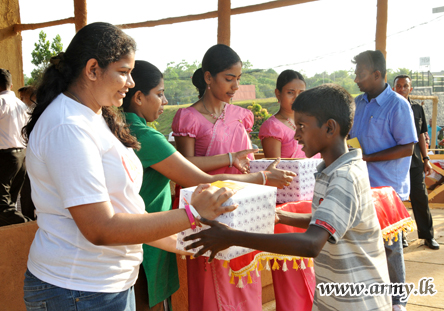 |
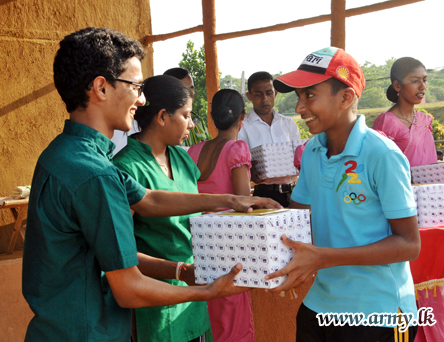 |
